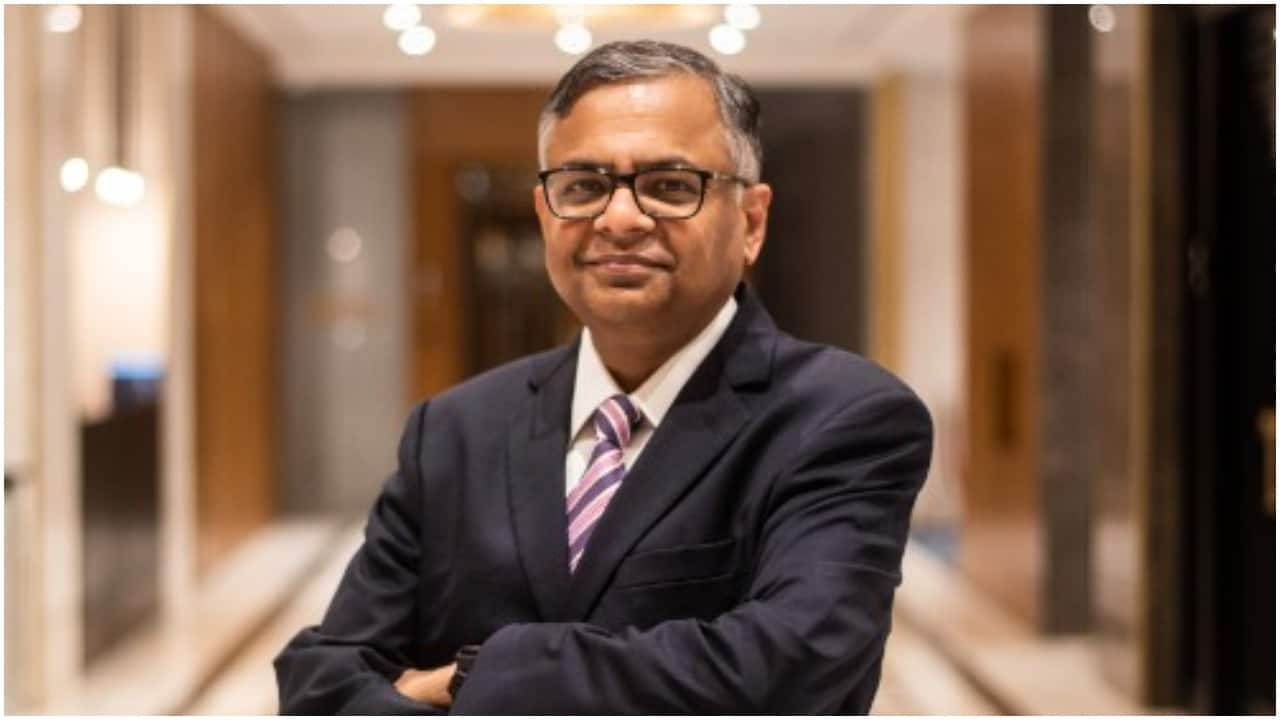Tata Motors' AGM was the first such event of the Tata Group that Chandrasekaran attended following the Air India flight AI-171 crash on June 12.
Homegrown auto giant Tata Motors is "not facing issues" related to the supply of rare earth magnets at present, even as it works on obtaining them from alternative sources, according to the company's Chairman, N Chandrasekaran.
Rare earth magnets are powerful permanent magnets composed of rare earth elements, including Neodymium (Nd), Praseodymium (Pr), Dysprosium (Dy), and Terbium (Tb). The most commonly used types are Neodymium-Iron-Boron (NdFeB) magnets, known for their high performance, and Samarium-Cobalt (SmCo) magnets, which are preferred for high-temperature applications.
Story continues below Advertisement Remove Ad
In the automotive sector, especially electric vehicles (EVs), the rare earth magnets are integral to the functioning of traction motors like permanent magnet synchronous motors (PMSMs). They are also employed in systems such as electric power steering (EPS), regenerative braking, electronic sensors, audio components, and heating, ventilation and air conditioning (HVAC) units.
The usage of rare earth magnets is maximum in components of EVs and hybrids. The internal combustion engine (ICE) models require relatively fewer components having rare earth magnets.
Addressing shareholders on June 20 at Tata's 80th Annual General Meeting (AGM), which commenced with a minute of silence to honour victims of the Air India flight AI-171 crash, Chandrasekaran said: "As of now, we are okay. We are not facing issues. We are able to source the magnets that we need, and we have plans for having the right level of inventory. We are working with the government."
"Also, we are working on sourcing from alternate sources. As of now, this is not a concern but this is something that we are watching very carefully," he added.
On the company's passenger vehicle (PV) business, Chandrasekaran, who is also Tata Sons Chairman, said that it has come a long way over the last few years. "The Tata Punch emerged as India's top-selling SUV, while the CNG and EVs constitute 36% of our multi-powertrain portfolio," he noted.
Tata's PV line-up currently includes the Tiago, Tigor, Altroz, Punch, Nexon, Curvv, Harrier and Safari. Additionally, the Tiago, Tigor, Punch, Nexon, Curvv and Harrier are available in EV avatars.
Story continues below Advertisement Remove Ad
Chandrasekaran said that our market share is above 50% in the electric PV segment.
"Tata Motors is fully committed on the transition to EVs. Already, EV sales, as part of our overall sales, are about 15%. We have a target to achieve 30% by 2030, but I think we will achieve the target earlier than that," he observed.
During its Investor Day presentation on June 9, Tata announced that it will introduce seven new nameplates and 23 product refreshes by FY30. Among them will be Sierra, the Avinya range, ICE Product A, ICE Product B, EV Product X and EV Product Y.
Talking about the US trade tariffs, Chandrasekaran observed that they are a major issue primarily for Jaguar Land Rover (JLR), with the impact being around 600,000,000 pounds (Rs 6,994 crore) following the company's preventive measures.
"From 2.5%, the tariffs would have gone to 27.5%. With the UK trade deal with the US, that 27.5% will drop to 10%. The overall impact, even of the 10%, is 1.6 billion pounds (Rs 18,649 crore). But JLR has taken lot of steps and with those steps they will be able to reduce the impact to 600 million pounds," he said.
On the geopolitical environment, Chandrasekaran said: "Going forward, volatility will continue to mark economic cycles from widespread geopolitical conflicts, military escalations, the redrawing of supply chains and tariff regimes to artificial intelligence and energy transition. Nowhere are all these disruptions visible more than in the automotive sector."
"Given the enormous amount of work we have done over the past years, from simplifying the businesses to making big strategic bets to strengthening our financial position, our businesses are structured to not just to handle this environment but to thrive," he noted.
On a consolidated basis in FY25, the commercial vehicle (CV), PV and JLR businesses delivered key milestones, including a record high revenue of Rs 4,39,695 crore, EBITDA of Rs 57,649 crore and a record high PBT (before exceptional items) of Rs 34,330 crore, resulting in the company becoming debt free.
Tata Motors' AGM was the first such event of the Tata Group that Chandrasekaran attended following the Air India flight AI-171 crash on June 12. He missed the AGMs of Tata Consultancy Services and Tata Consumer Products.

